When your child first starts eating solid food, there’ll be plenty of moments when you think they aren't getting enough. Don't panic – it’s more important to think about what they eat over the course of a week than what they eat in a day. Here are some tips to help if things aren't going to plan.
Why isn’t my baby eating anything?
There’ll be plenty of moments when you think your child isn’t getting enough food, especially if they refuse to eat. Don't panic – it’s more important to think about what they eat over the course of a week than what they eat in a day. As long as they’re eating some food from the 5 main food groups - even if it’s always the same favourites - there’s no need to worry. However, you need to keep offering foods in different flavour groups and avoid just offering bland foods or sweet fruit and vegetables. Avoid foods that have “empty calories” (i.e. they don’t have much good stuff in them) such as rice cakes.
You can’t expect your baby to love every new food they try, so introduce other foods slowly and go back many times to the ones they didn’t like before. But the best way for them to learn to eat and enjoy new textures and flavours is to eat with the family and to copy good eating habits. Eating with them as often as you can will make it much easier.
Tips for parents of fussy eaters
- Give your child the same food as the rest of the family, but remember not to add salt to your child's food during or after cooking.
- Eat your meals together if possible – they’ll eat well if they see you do it too.
- Give small portions and praise your child for eating, even if they only manage a little.
- Don’t force them to eat it. When they are not interested or after a maximum of 20 minutes just take the food away without comment. It can be frustrating but you need to stay calm.
- Don’t leave meals until your child is too hungry or tired to eat.
- Don’t fill your baby up with snacks close to mealtimes.
- Your baby may be a slow eater so be patient.
- Remove all distractions such as toys, television and screens.
- Don’t give too many snacks between meals. Try not to give treats such as sweets, biscuits, cakes, and crisps to your wee one. Limit them to a milk drink and something simple that won’t fill them up. You’ll find some suggestions here.
- Don’t use food as a reward. Your child may start to think of sweets as nice and vegetables as nasty. Instead, reward them with a trip to the park or promise to play a game with them.
- Children sometimes get thirst and hunger mixed up. They might say they’re thirsty when really they’re hungry.
- Make mealtimes enjoyable and not just about eating. Chat about what you did today.
- Invite children of the same age (who are good eaters) round for tea. A good example can work well but don’t talk too much about how good the other children are!
- Ask a relative or family friend your child likes, to eat with you. Sometimes a child will eat for someone else, such as a grandparent, without any fuss.
- Children’s tastes change. One day they’ll hate something, but a month later they may love it.
- Changing how you give them food can make a difference too. Your child might refuse cooked carrots but enjoy raw or grated carrot.
- Try making plates of food colourful and interesting for your little one.
- Have a look at our page on first food recipes for some great first menu ideas.
Tips from parents
"Have spare clothes ready for both of you."
"If you have it on your plate they will show a lot more interest in the food they would have previously refused."
"You can do everything 'by the book', and still one day, weeks, months or years down the line, they'll just wake up and decide for no reason at all that today's the day to never eat anything vaguely squishy/red-coloured/apple-flavoured ever again."
"Don't worry about how much your baby is actually eating and just let them explore all of the different textures, tastes and smells of each different food! Have fun with it!"
 Activities & Play
Activities & Play Behaviour
Behaviour Childcare
Childcare Development & Growing Up
Development & Growing Up Family, Friends & Relationships
Family, Friends & Relationships Feeding Your Baby
Feeding Your Baby Food & Eating
Food & Eating Health & Safety
Health & Safety Mental Health & Wellbeing
Mental Health & Wellbeing Money & Work
Money & Work Online Behaviour & Safety
Online Behaviour & Safety Pregnancy & First Days
Pregnancy & First Days School & Education
School & Education Sleep
Sleep

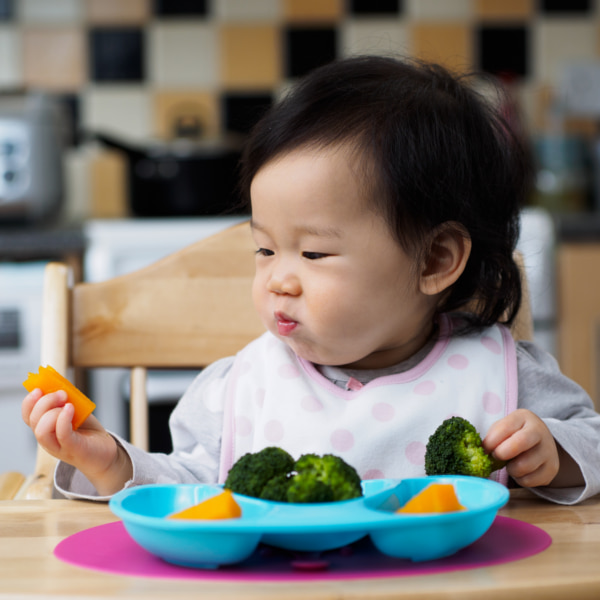

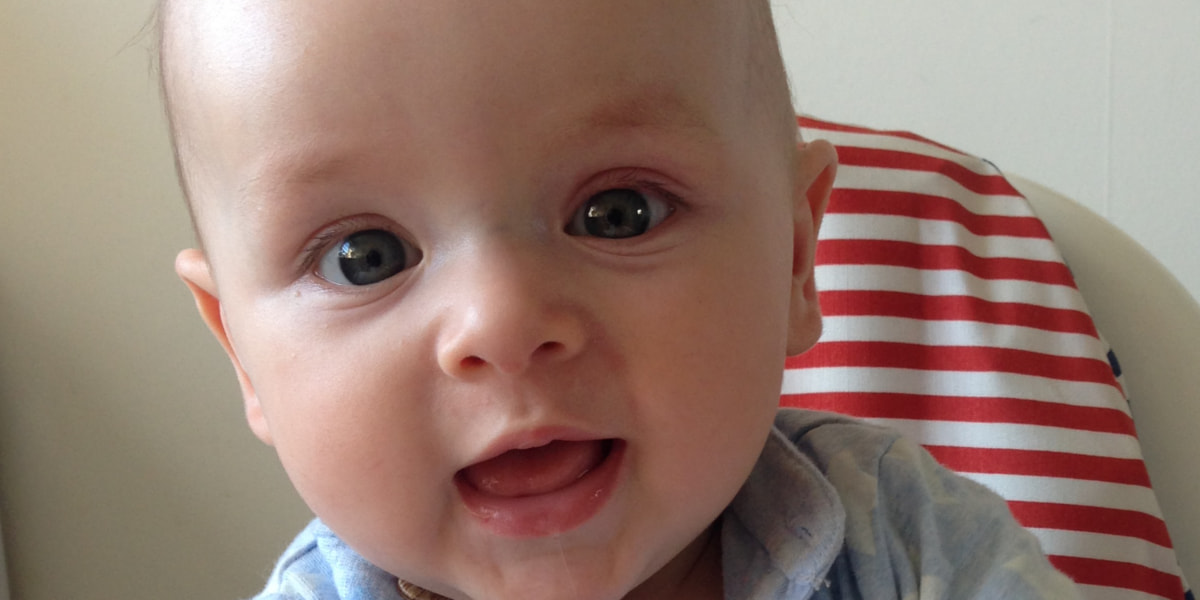
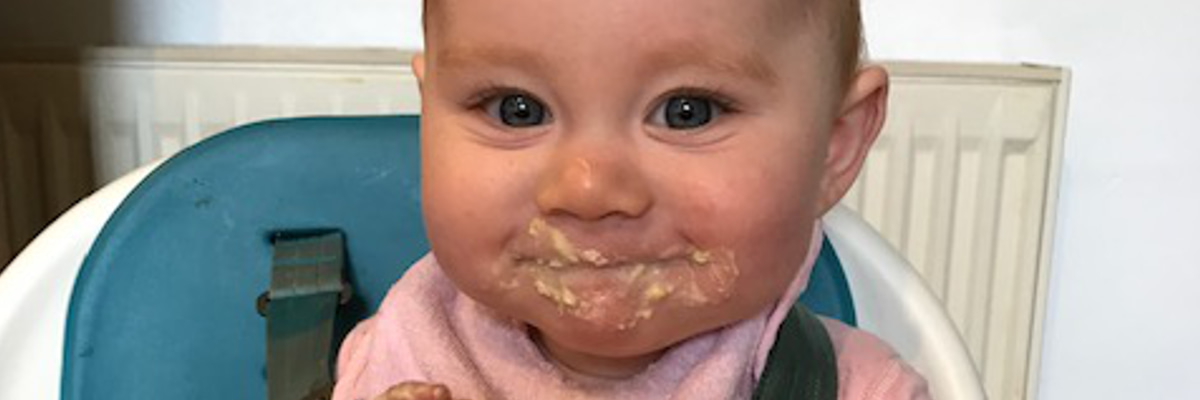
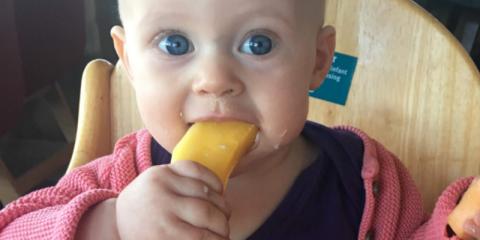





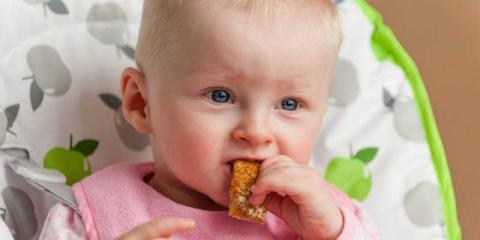
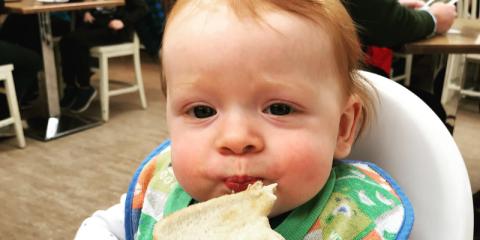
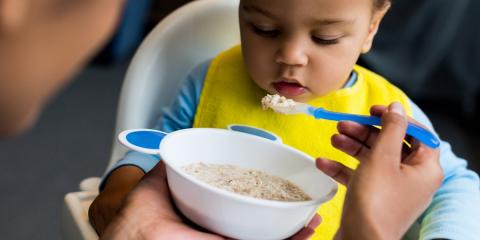
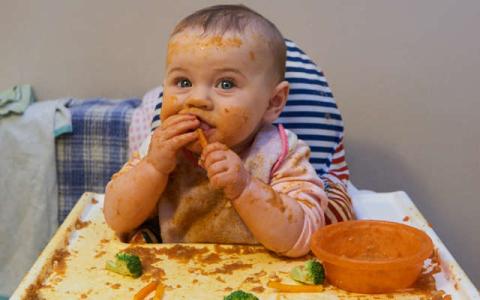

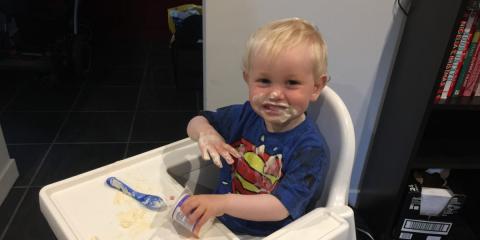
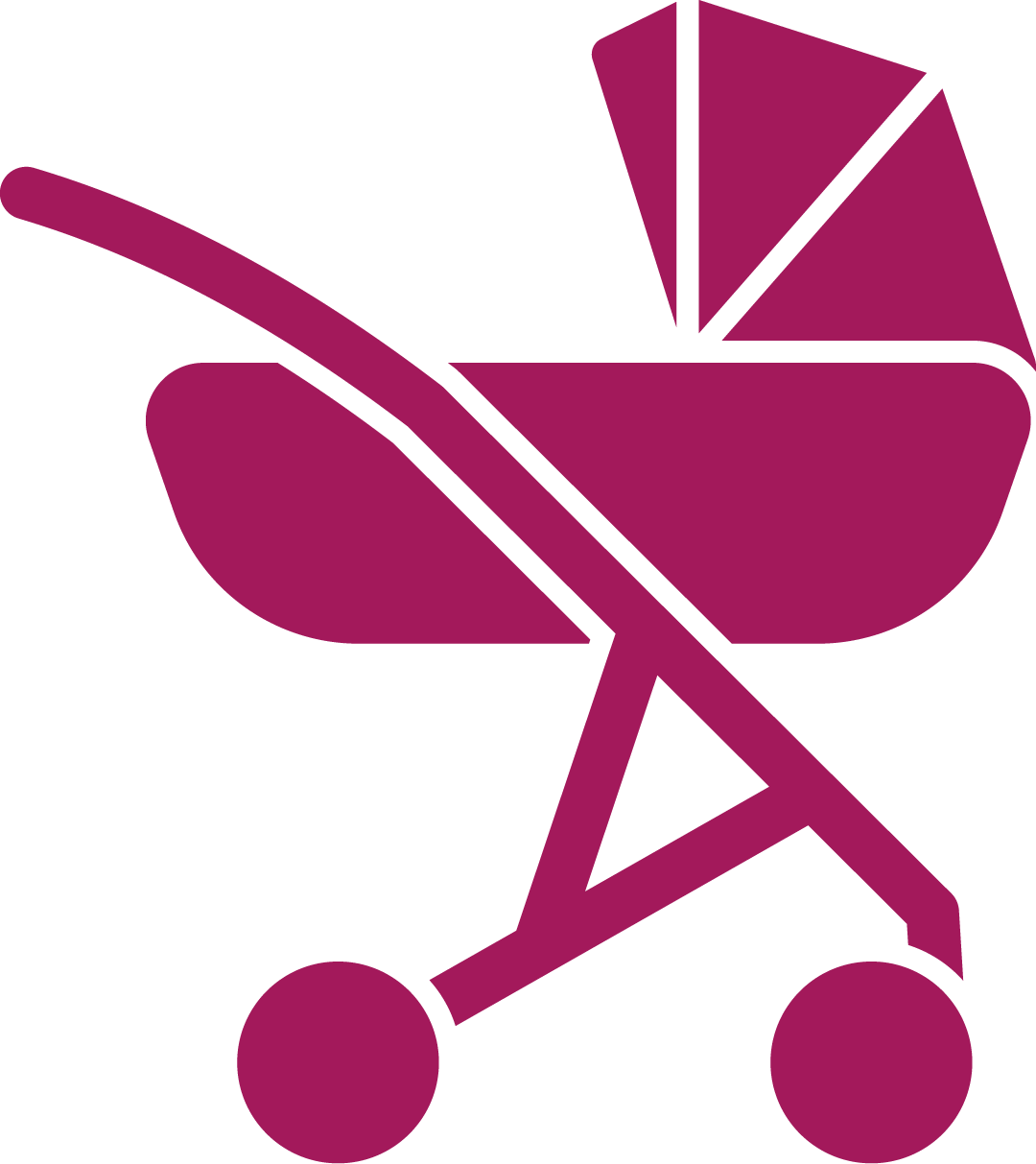 Pregnancy & First Days
Pregnancy & First Days
 Sleep
Sleep